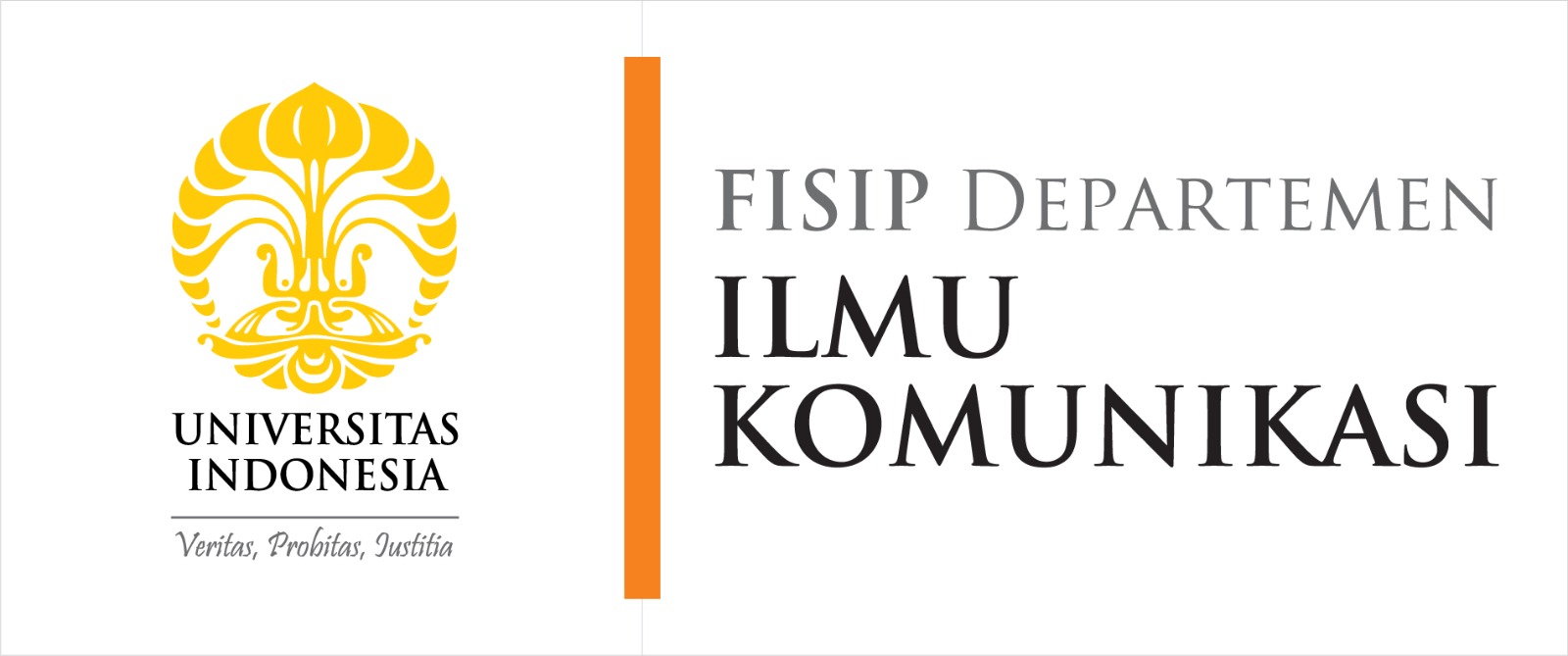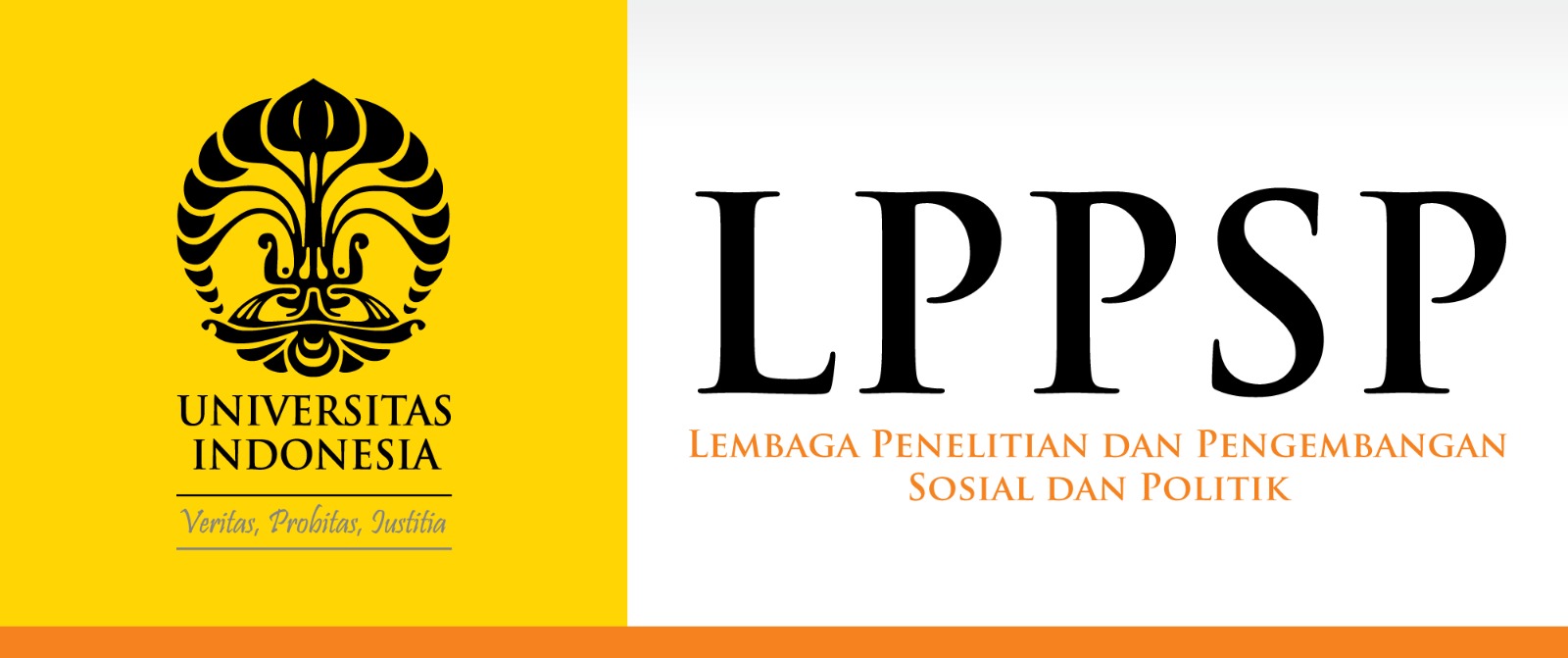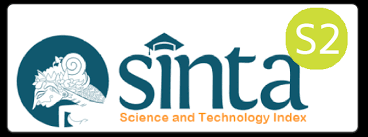JURNAL KOMUNIKASI INDONESIA
Abstract
Currently, the COVID-19 pandemic is getting under control, and people tend to adapt and live their lives in the new normal era. Despite that, media outlets carry on reporting the COVID-19 pandemic considering the information is still needed by the public. It is undeniable that journalists play an essential role in disseminating information about health risks to audiences. Nevertheless, news about health crises is often criticized for being sensational, incomplete, and inaccurate, giving rise to misunderstanding, panic, or even public neglect. Thus, it is hoped that the media outlets could present more constructive news to anticipate the effects of anxiety, panic, fatigue, stress, and depression encountered by the public after consuming information pertaining to COVID-19. This paper aims to explore how Indonesian journalists perceived the constructive journalism approach and its implementation in their journalistic work related to covering and reporting on Covid-19 news. Using constructive journalism theory and news framing and adapting qualitative research, the researchers conducted in-depth interviews with eight journalists from various media outlets spanning from television, online news media, and daily newspapers to the weekly news magazine. This research revealed that most Indonesian journalists are not familiar with constructive journalism. Nevertheless, they conceived the approach of constructive journalism. The concept has been implemented in covering Covid-19 news by Indonesian journalists though it has not been shown as the optimal undertaking due to external and internal factors. As a result, there are still accounts of Covid-19 that could trigger public anxiety and cause them to endure other adverse psychological effects after consuming news stories. This research suggests that media outlets and Indonesian journalists could consider and comprehensively grasp the constructive journalism approach in their daily journalistic works to anticipate those negative psychological impacts.
References
Abdullah, M. Q., Hayat, N., & Rahman, A. (2020). The Agenda Setting of Corona: Analysis of the Corona Dissemination Impact on the Community. Mediator: Jurnal Komunikasi, 13(2). https://doi.org/10.29313/mediator.v13i2.6302
Agustiyanti. (2022, March 31). Sri Mulyani Berharap Tak Ada Gelombang Baru Covid-19 Usai Lebaran - Nasional Katadata.co.id. https://katadata.co.id/agustiyanti/berita/6245759ea213c/sri-mulyani-berharap-tak-ada-gelombang-baru-covid-19-usai-lebaran
Ahva, L., & Hautakangas, M. (2018). Why Do We Suddenly Talk So Much About Constructiveness? Journalism Practice, 12(6), 657–661. https://doi.org/10.1080/17512786.2018.1470474
Aitamurto, T., & Varma, A. (2018). The Constructive Role of Journalism: Contentious metadiscourse on constructive journalism and solutions journalism. Journalism Practice, 12(6), 1–19. https://doi.org/10.1080/17512786.2018.1473041
Astasari, & Anindita, M. (2022, April 27). Edukasi dan Pemantauan Mudik Sehat 2022. https://kesmas.kemkes.go.id/konten/133/0/edukasi-dan-pemantauan-mudik-sehat-2022
Braun, V., & Clarke, V. (2006). Using Thematic Analysis in Psychology. Qualitative Research in Psychology, 3(2), 77–101. https://doi.org/10.1191/1478088706qp063oa
Bruin, K. de, Haan, Y. de, Vliegenthart, R., Kruikemeier, S., & Boukes, M. (2021). News Avoidance during the Covid-19 Crisis: Understanding Information Overload. Digital Journalism, 9(9), 1286–1302. https://doi.org/10.1080/21670811.2021.1957967
Din, A. M., Shahid, A., & Abrar, M. (2021). Use Of Constructive Approach In Talk Shows: A Case Of Post Corona Raised Social, Economic And Religious Issues In Pakistan. Journal of Media Studies, 36(1), 1–22. http://journals.pu.edu.pk/journals/index.php/jms/index
First, J. M., Shin, H., Ranjit, Y. S., & Houston, J. B. (2021). COVID-19 Stress and Depression: Examining Social Media, Traditional Media, and Interpersonal Communication. Journal of Loss and Trauma, 26(2), 101–115. https://doi.org/10.1080/15325024.2020.1835386
Gong, J., Zanuddin, H., Hou, W., & Xu, J. (2021). Media attention, dependency, self-efficacy, and prosocial behaviours during the outbreak of COVID-19: A constructive journalism perspective. Global Media and China, XX, 1–18. https://doi.org/10.1177/20594364211021331
Grijalva, A. (2018). Análisis del efecto del periodismo constructivo en el pensamiento y comportamiento de los periodistas. #PerDebate, 2(1). https://doi.org/10.18272/pd.v2i0.1334
Groot Kormelink, T., & Klein Gunnewiek, A. (2021). From “Far Away” to “Shock” to “Fatigue” to “Back to Normal”: How Young People Experienced News During the First Wave of the COVID-19 Pandemic. Journalism Studies, 1–18. https://doi.org/10.1080/1461670X.2021.1932560
Haagerup, U. (2015). Constructive News. InnoVatio Publishing.
Hermans, L., & Drok, N. (2018). Placing Constructive Journalism in Context. Journalism Practice, 12(6), 679–694. https://doi.org/10.1080/17512786.2018.1470900
Hermans, L., & Gyldensted, C. (2018). Elements of constructive journalism: Characteristics, practical application and audience valuation: Https://Doi.Org/10.1177/1464884918770537, 20(4), 535–551. https://doi.org/10.1177/1464884918770537
Hermans, L., & Prins, T. (2020). Interest matters: The effects of constructive news reporting on Millennials’ emotions and engagement. Journalism, 146488492094474. https://doi.org/10.1177/1464884920944741
Hikmah, K., Prisandy, L., Melinda, G., & Ayatullah, M. I. (2020). An Online Survey: Assessing Anxiety Level among General Population during the Coronavirus Disease-19 Pandemic in Indonesia. Open Access Macedonian Journal of Medical Sciences, 8(T1), 451–458. https://doi.org/10.3889/oamjms.2020.5386
Jørgensen, K. L., & Risbro, J. (2021). Handbook for Constructive Journalism. Constructive Institute & IMS.
Kartinawati, E., & Gama, B. (2021). Public and Journalist Perception in Surakarta about Covid-19 News Model. Jurnal ASPIKOM, 6(1). https://doi.org/10.24329/aspikom.v6i1.714
Kiger, M. E., & Varpio, L. (2020). Thematic analysis of qualitative data: AMEE Guide No. 131. Medical Teacher, 42(8). https://doi.org/10.1080/0142159X.2020.1755030
Kuang, Y., Xu, M.-X., Yang, S.-W., Ding, Y., Zheng, R., Taplin, J., & Li, S. (2021). Which Information Frame is Best for Reporting News on the COVID-19 Pandemic? An Online Questionnaire Study in China. Psychology Research and Behavior Management, Volume 14, 563–574. https://doi.org/10.2147/PRBM.S309146
Maguire, M., & Delahunt, B. (2017). Doing a Thematic Analysis: A Practical, Step-by-Step Guide for Learning and Teaching Scholars. All Ireland Journal of Teaching and Learning in Higher Education. All Ireland Journal of Teaching and Learning in Higher Education n (AISHE-J), 8(3).
McIntyre, K. (2020). “Tell Me Something Good”: Testing the Longitudinal Effects of Constructive News Using the Google Assistant. Electronic News, 14(1), 37–54. https://doi.org/10.1177/1931243120910446
McIntyre, K., & Gyldensted, C. (2017). Constructive Journalism: Applying Positive Psychology Techniques to News Production. The Journal of Media Innovations, 4(2), 20–34. https://doi.org/10.5617/jomi.v4i2.2403
McIntyre, K., & Gyldensted, C. (2018). Positive Psychology as a Theoretical Foundation for Constructive Journalism. Journalism Practice. https://doi.org/10.1080/17512786.2018.1472527
Moy, P., Tewksbury, D., & Rinke, E. M. (2016). Agenda‐Setting, Priming, and Framing. In K. B. Jensen & R. T. Craig (Eds.), The International Encyclopedia of Communication Theory and Philosophy. JohnWiley & Sons, Inc. https://doi.org/10.1002/9781118766804.wbiect266
Newman, N., Fletcher, R., Robertson, C. T., Eddy, K., & Nielsen, R. K. (2022). Digital News Report 2022.
Overgaard, C. S. B. (2021). Constructive Journalism in the Face of a Crisis: The Effects of Social Media News Updates About COVID-19. Journalism Studies, 1–19. https://doi.org/10.1080/1461670X.2021.1971107
Parahita, G. D. (2021). The covid-19 pandemic resilience of indonesian journalists. Pacific Journalism Review, 27(1–2). https://doi.org/10.24135/pjr.v27i1and2.1191
Serrano-Puche, J. (2020). Constructive Journalism: a response to users’ motivations for news avoidance. Cuadernos.Info, 46, 153–177. https://doi.org/10.7764/cdi.46.1714
Setiyaningsih, L. A. (2020). Media Panics Ibu Rumah Tangga Setelah Mengakses Berita Covid-19. Jurnal Nomosleca, 6(2). https://doi.org/10.26905/NOMOSLECA.V6I2.4721
Supriatin. (2022, March 14). Melihat Aktivitas Masyarakat di Tengah Relaksasi Aturan Perjalanan | merdeka.com. https://www.merdeka.com/peristiwa/melihat-aktivitas-masyarakat-di-tengah-relaksasi-aturan-perjalanan.html
Tshabangu, T., & Salawu, A. (2021). An evaluation of constructive journalism in Zimbabwe: A case study of The Herald’s coverage of the coronavirus pandemic. Journal of African Media Studies, 13(3), 477–490. https://doi.org/10.1386/jams_00060_1
Vivona, V., & Caranti, N. (2020). The Impact of Digitalisation on Media and Journalism Digital Transformation in Learning for Active Citizenship (S. Valdmaa & N.-E. Zimmermann (eds.)). DARE - Democracy and Human Rights Education in Europe. https://dttools.eu/pdf/digit-al-io1-media-and-journalism.pdf
Wirawanda, Y., & Arrasyid, K. H. (2021). Jurnalisme Konstruktif dalam Berita Varian Baru Covid-19 (Analisis Semiotika Roland Barthes terhadap Berita di Okezone.com). Calathu: Jurnal Ilmu Komunikasi, 3(1), 20–28. https://doi.org/10.37715/calathu.v3i1.1896
Yin, L. (2021). Constructive Journalism in China: Research and Practice. Social Sciences in China, 42(2), 145–168. https://doi.org/10.1080/02529203.2021.1924465
Zakout, Y. M.-A., Alreshidi, F. S., Elsaid, R. M., & Ahmed, H. G. (2020). The magnitude of COVID-19 related stress, anxiety and depression associated with intense mass media coverage in Saudi Arabia. AIMS Public Health , 7(3), 664–678. https://doi.org/10.3934/PUBLICHEALTH.2020052
Erratum
The latest version (uploaded August 22nd, 2023) contains a correction of Figure 1 (Map of themes and sub themes around the perception of constructive journalism and its implementation on Covid-19 news) which was severely altered by our lay-outing process in the earlier version of the manuscript. This change was made in accordance with author’s request.
Recommended Citation
Ariestyani, Kencana
(2023)
"Constructive Journalism: Indonesian Journalists’ Perception and Implementation in the Covid-19 News,"
JURNAL KOMUNIKASI INDONESIA: Vol. 12:
No.
1, Article 6.
DOI: 10.7454/jkmi.v12i1.1058
Available at:
https://scholarhub.ui.ac.id/jkmi/vol12/iss1/6
Included in
Gender, Race, Sexuality, and Ethnicity in Communication Commons, International and Intercultural Communication Commons, Social Influence and Political Communication Commons




